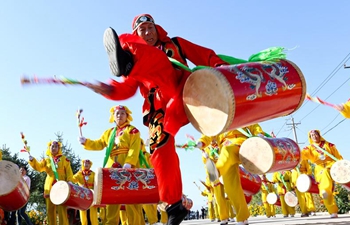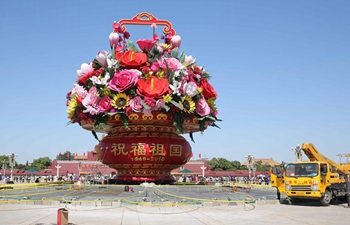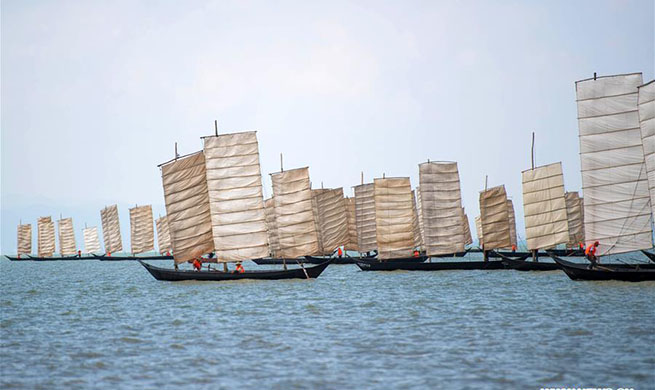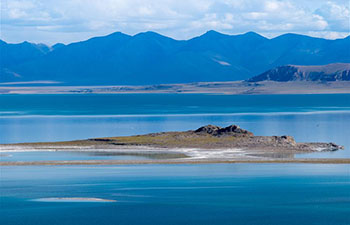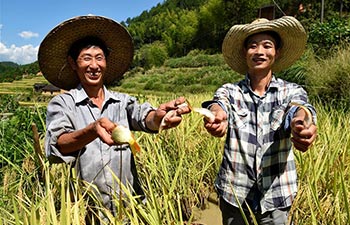NAIROBI, Sept. 23 (Xinhua) -- The UN refugee agency on Sunday urged Kenya to adopt a policy of inclusion rather that use of camps in refugee protection.
Raouf Mazou, United Nations High Commissioner for Refugees (UNHCR) representative in Kenya, told Xinhua in Nairobi that restriction of refugees inside camps means that donors' funds can only be used for the refugees.
"What we have seen as a result of studies conducted by the World Bank and other organizations is that it is much better for the economy if Kenya embraces an inclusive policy for refugees," Mazou said during the Step for Safety walk, which is an initiative of UNHCR's LuQuLuQu campaign.
The campaign calls on individuals, families, colleagues to walk in solidarity for the over 24 million people who have been forced to flee their homes across Africa.
Mazou said the policy of using camps could lead to resentment by the host population who perceive that refugees are receiving more assistance than them.
He said the international comprehensive refugee response framework was adopted by the UN General Assembly in 2016 and urges all member states to implement a new approach to refugee protection and assistance including the policy of inclusion.
While the majority of refugees in Kenya live in the Dadaab and Kakuma camps, approximately 50,000 reside in the cities, Mazou said.
The UN official said there are currently 470,000 refugees and asylum seekers in Kenya, with over 50 percent of them from Somalia.
He noted that the overall number of refugees hosted in Kenya has been on the decline due to the voluntary repatriation of Somali refugees to their home of origin.
"However, the country is still receiving refugees mostly from South Sudan on a daily basis," he said.
Mazou said total funding to the refugees in Kenya from UN agencies and other partners is estimated at between 200 million to 300 million U.S. dollars annually.


